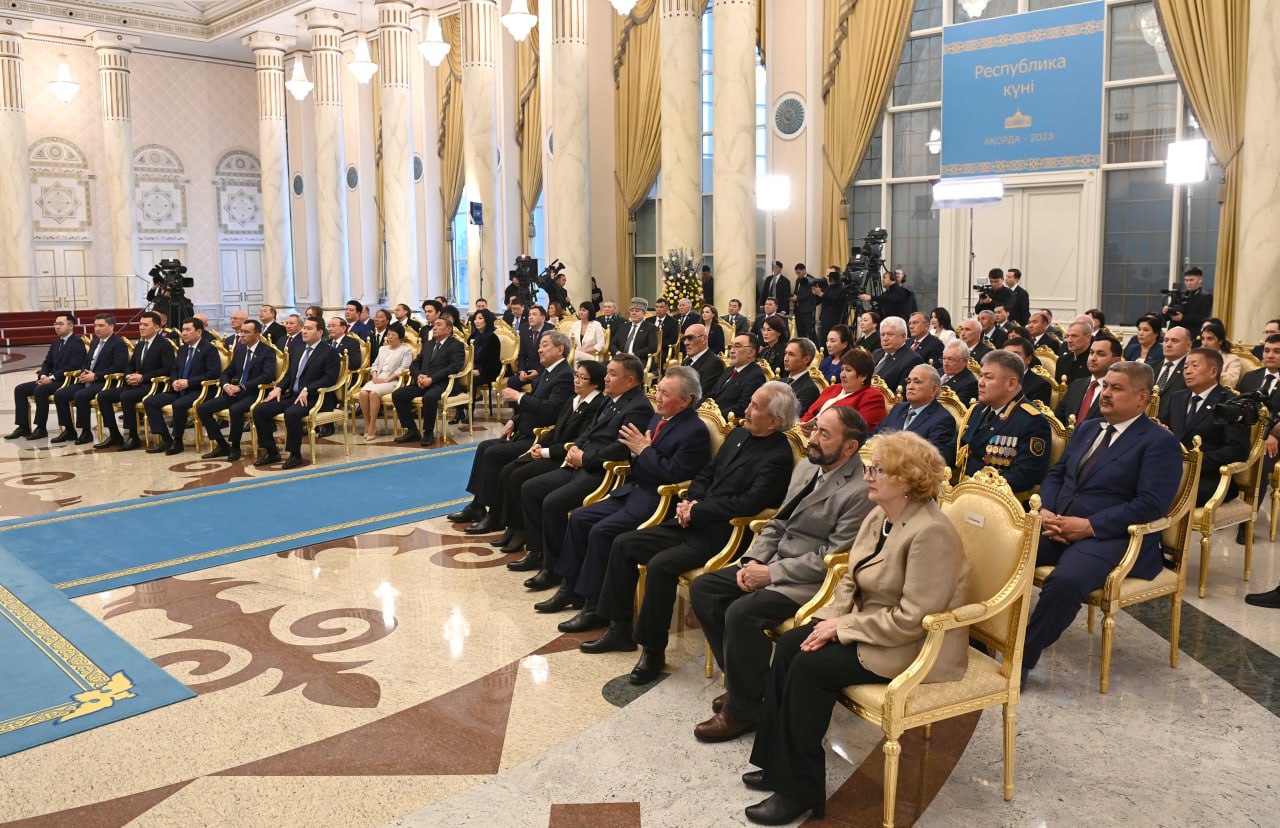In late October, Kazakh President Kassym-Jomart Tokayev delivered an insightful speech on the eve of the country’s Republic Day holiday. Not only did the address reflect on the Declaration of Independence in 1990, but it also provided a comprehensive assessment of current events in the country. This dual perspective allowed Tokayev to seamlessly embody both roles – that one as the head of state, which he has held since 2019, and that of a professionally-trained political scientist and diplomat.

Photo credit: Akorda.
The President’s speech highlighted five key themes. Firstly, he emphasized independence as the paramount national value. Secondly, he underscored a commitment to a balanced, peaceful, and cooperative foreign policy. Thirdly, he stresses the irreversibility of recent progressive reforms that bolstered the rule of law and transformed the governance culture. Additionally, the President emphasized the pivotal role of the youth in shaping Kazakhstan’s future. Lastly, he reiterated the nation’s dedication to recognizing and honoring its citizens’ honest and dedicated work.
In his assessment of the first theme, emphasizing the significance of the country’s independence, Tokayev highlighted over a dozen unsung heroes of the early 1990s who played a pivotal role in forming the new state. “This declaration of independence,” he affirmed, “met the aspirations and expectations of the people and was adopted thanks to the wisdom and prudence of the country’s patriots.” He said their “courage and determination, shown at a critical hour, can be regarded as true heroism.”
Although Tokayev humbly omitted himself from the mentioned achievements, the audience was aware that following the dissolution of the Soviet Union, he assumed the role of the deputy foreign minister of a newly independent Kazakhstan in 1992. He held this position for the better part of a decade before advancing to the roles of prime minister and then Prime Minister in 1999. Between 2002 and 2007, he represented the country’s foreign ministry and served as state secretary. Subsequently, he spent two years as Director-General of the United Nations Geneva Office and later chaired Kazakhstan’s Senate until 2019, when he ascended to the Presidency.
President Tokayev emphasized that Kazakhstan’s strategy to consolidate and preserve its independence revolves around a balanced, peaceful, and cooperative foreign policy. This approach aims to safeguard peace and harmony beyond the nation’s borders. The President highlighted that Kazakhstan’s “precious legacy” of independence is imperative in this context.
He highlighted that the current state of Kazakhstan is the latest iteration in a historical continuum of Kazakh states, tracing its roots back to Turkic Khaganates, the Golden Horde, and the Kazakh Khanate. Emphasizing the significance, Tokayev underscored that the present state of Kazakhstan not only stands as a historical milestone but also reflects an enduring commitment to the future, shaping the nation’s diplomatic strategy and approach to global interactions.

President Tokayev emphasized that Kazakhstan’s strategy to consolidate and preserve its independence revolves around a balanced, peaceful and cooperative foreign policy. Photo credit: Akorda.
President Tokayev’s Republic Day speech emphasized the imperative need for “zero tolerance” towards any manifestations of radicalism, extremism, legal nihilism, and everyday vandalism. These issues must not be tolerated as they pose a threat to social stability and unity, which are fundamental domestic requirements for maintaining sovereignty and statehood. The President’s firm stance against these destructive forces aligns with the government’s dedication to upholding and ensuring respect for the rule of law.
Tokayev’s transformative reforms in Kazakhstan over the past several years have played a vital role in bolstering the rule of law and reshaping the political landscape and the population’s mindset. Hence, it is unsurprising that the third key theme of his Republic Day speech focused on the irreversible nature of these reforms.
Due to Tokayev’s ambitious and progressive reforms, the governing culture has undergone a notable transformation. This transformation established a new operational dynamic within the state in a relatively short time, so deeply ingrained that reverting to the country’s former practices is now nearly inconceivable.
This new forward-thinking approach to national development and governance emphasizes President Tokayev’s fourth key point – the crucial role of the young people in shaping the country’s future. Tokayev acknowledges the younger generation for their energy, innovative potential, creativity, and adaptability, considering them essential drivers of the nation’s ongoing progress. “Today’s youth,” he said, “personifies the image of Kazakhstan,” and what Kazakhstan “will become in the future depends on the younger generation.”
This focus on youth underscores a strategic vision to empower the next generation to safeguard the nation’s legacy as architects of its destiny. “It is necessary for Republic Day to become a special holiday that strengthens people’s faith in the future,” he said, emphasizing the significance of the holiday for the younger demographic.
As his fifth point, the President emphasized the importance of recognizing and celebrating honest and responsible work as a cornerstone of the nation’s advancement. In support of this initiative, he has previously bestowed state awards upon numerous individuals, including teachers, doctors, rural workers, labor veterans, and industrial workers. He has spotlighted the nation’s strong work ethic and imperativeness to acknowledge and reward its citizens’ tireless efforts and dedication.
President Tokayev’s Republic Day speech in 2023 is a historical document marking the initial 33 years of Kazakhstan’s independent existence – a significant third of a century. The address skillfully emphasized five key areas, reflecting a well-balanced attention to both domestic and foreign affairs. Notably, it recognizes the state as the autonomous national agent of the people, situated at the interface between domestic and foreign realms. In this role, the state is entrusted with safeguarding and steering the country’s trajectory through turbulent times.
The author is Aida Haidar, Senior News Editor of The Astana Times.
